 Ductless air conditioners really are becoming more popular in our area. While that’s generally good news, since we love these systems and the fact that they’re perfect for many homeowners, they aren’t without their own set of problems. Just like any other air conditioning system, problems can be mitigated, but it’s becoming increasingly important for homeowners to be vigilant and up-to-date on all the knowledge about their home comfort systems.
Ductless air conditioners really are becoming more popular in our area. While that’s generally good news, since we love these systems and the fact that they’re perfect for many homeowners, they aren’t without their own set of problems. Just like any other air conditioning system, problems can be mitigated, but it’s becoming increasingly important for homeowners to be vigilant and up-to-date on all the knowledge about their home comfort systems.
So, today we’re focusing on a lesser-known part of the ductless air conditioning system, the condensate drain. All air conditioners have this component, but what makes the ductless system different is that the condensate drain can run behind the drywall, running from the wall-mounted air handlers to a condensate pan. As the air is cooled, moisture condenses from the air and must be deposited through a drain system. When these drains clog, you’ll find yourself flooded with problems and will be calling our team for help with your air conditioning in Lake City, FL.
Don’t worry, keep reading and we’ll get into detail about what’s required to fix this type of problem.


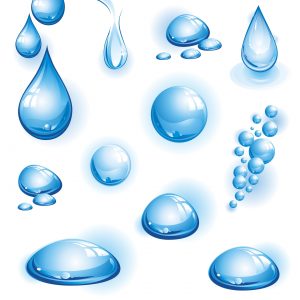 Humidity is a well-known problem here in Florida. That’s where HVAC professionals like us come in, we help homeowners in our area deal with these uncomfortable situations with technology that can handle such a task.
Humidity is a well-known problem here in Florida. That’s where HVAC professionals like us come in, we help homeowners in our area deal with these uncomfortable situations with technology that can handle such a task.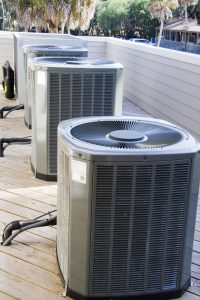 An air conditioner that smells bad is likely to do more harm than good at this point. If the system is responsible for depositing cool air into your home, that cool air should smell fresh or at least odorless when you breathe it in. Any foul odors should be investigated and dealt with—full stop!
An air conditioner that smells bad is likely to do more harm than good at this point. If the system is responsible for depositing cool air into your home, that cool air should smell fresh or at least odorless when you breathe it in. Any foul odors should be investigated and dealt with—full stop! If we’re certain about one thing this spring, it’s that customers have a lot of questions about the condition and functionality of their air conditioners. People are tightening their belts (literally and figuratively) while they get ready to save up for that vacation or find ways to afford that second car. This means homeowners are focused on running their air conditioners well this spring, and hopefully we can help!
If we’re certain about one thing this spring, it’s that customers have a lot of questions about the condition and functionality of their air conditioners. People are tightening their belts (literally and figuratively) while they get ready to save up for that vacation or find ways to afford that second car. This means homeowners are focused on running their air conditioners well this spring, and hopefully we can help! AC repair in Lake City, FL
AC repair in Lake City, FL Heat pumps are reliable, efficient, and effective forms of heating, but they’re not perfect. No heating system will realistically run for decades straight without a single problem occurring, that’s just not how these systems really work. They’re composed of many different components that all work together, some of those components will have trouble and hinder the process of your heating or cooling.
Heat pumps are reliable, efficient, and effective forms of heating, but they’re not perfect. No heating system will realistically run for decades straight without a single problem occurring, that’s just not how these systems really work. They’re composed of many different components that all work together, some of those components will have trouble and hinder the process of your heating or cooling.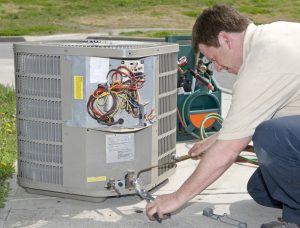 We’re always baffled by homeowners who spend all this money on an expensive new air conditioner, only to throw it away by having it poorly installed by a handyman or family member. Not that we have anything against having your gifted uncle make a few repairs around the house, but your air conditioner should not be one of them. Improper air conditioner installation is an ugly monster that rears its head in our community every once in a while, always bringing bad news and that looming sense of dread when you hear how much money a replacement system will cost.
We’re always baffled by homeowners who spend all this money on an expensive new air conditioner, only to throw it away by having it poorly installed by a handyman or family member. Not that we have anything against having your gifted uncle make a few repairs around the house, but your air conditioner should not be one of them. Improper air conditioner installation is an ugly monster that rears its head in our community every once in a while, always bringing bad news and that looming sense of dread when you hear how much money a replacement system will cost. Heat pumps are all the rage these days, while we think there are benefits to all types of air conditioners, there is some truth to the rumors. Ductless air conditioners, or mini-splits as they’re called, these powerful systems are an effective and efficient alternative to those who don’t want extensive ductwork installed in their home. Just because your home is too small or too old for air ducts to be installed, doesn’t mean you can’t benefit from high-quality cooling!
Heat pumps are all the rage these days, while we think there are benefits to all types of air conditioners, there is some truth to the rumors. Ductless air conditioners, or mini-splits as they’re called, these powerful systems are an effective and efficient alternative to those who don’t want extensive ductwork installed in their home. Just because your home is too small or too old for air ducts to be installed, doesn’t mean you can’t benefit from high-quality cooling!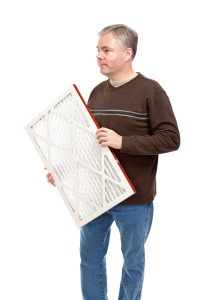 If you’ve ever talked to an HVAC pro about your air filter, you’ve probably heard the advice to change it out every month or so. Or if you have a higher quality filter, perhaps every 3 months.
If you’ve ever talked to an HVAC pro about your air filter, you’ve probably heard the advice to change it out every month or so. Or if you have a higher quality filter, perhaps every 3 months.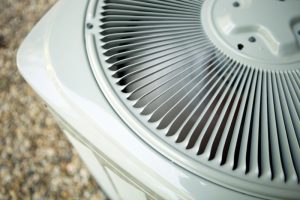 One of the most common, and unfortunately harmful, problems an air conditioner can have is something called short-cycling. This is both a symptom of a problem and a cause of a problem. Sometimes a few simple adjustments may be all that’s needed to repair the issue. But in many cases, it will require professional repairs from a trained and experienced HVAC technician (which is what we’re here for!)
One of the most common, and unfortunately harmful, problems an air conditioner can have is something called short-cycling. This is both a symptom of a problem and a cause of a problem. Sometimes a few simple adjustments may be all that’s needed to repair the issue. But in many cases, it will require professional repairs from a trained and experienced HVAC technician (which is what we’re here for!)




